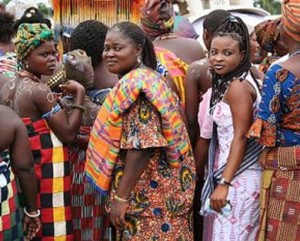ECOWAS to redouble efforts on gender mainstreaming
 West African Regional experts on gender and elections have called on the ECOWAS Commission to intensify efforts towards gender mainstreaming to ensure equitable participation and representation of women in elections in the sub-region.
West African Regional experts on gender and elections have called on the ECOWAS Commission to intensify efforts towards gender mainstreaming to ensure equitable participation and representation of women in elections in the sub-region.
The experts urged the Commission to develop, disseminate and implement its Gender Policy, as it relates to various ECOWAS normative frameworks, including the Supplementary Protocol on Democracy and Good Governance of 2001.
The experts further urged the Commission to adequately resource and strengthen the Department of Social Affairs and Gender, and the ECOWAS Gender and Development Centre with financial and human capacity for effective tracking and monitoring of gender responsive actions within the Commission and in member states.
The call forms part of recommendations deduced at the end of a sub-regional workshop, which validated a Baseline Assessment Report on Gender Mainstreaming in Elections by the ECOWAS Commission.
The Commission, through its Electoral Assistance Division, should also create and use Gender and Election Experts’ database to enhance gender equity in the deployment of Short-and Long-Term Observation Missions, the workshop recommended.
In addition, the experts urged the Commission to work with gender focused Civil Society Organizations (CSOs) to support the ECOWAS political party development initiatives on gender mainstreaming.
Capacity should also be built around the ECOWAS Gender and Elections Strategic Framework, to secure the necessary buy-in and effective implementation.
The Report, validated by the experts, was commissioned in January, 2018 with inputs from the ECOWAS Departments of Social Affairs and Gender among others.
These include the ECOWAS Network of Electoral Commissions and financially supported by the European Union, under the EU-ECOWAS Peace, Security and Stability Mandate Project.
Meanwhile Dr Siga Fatima Jagne, the ECOWAS Commissioner for Social Affairs and Gender, said the meeting was part of efforts to “introduce a gender monitoring and evaluation mechanism for consistency in the implementation of the Action Plan of the ECOWAS Gender and Election Strategic Framework.’
The framework was endorsed in 2017 by Regional Ministers in charge of Women Affairs and the ECOWAS Council of Ministers.
Dr Jagne, in an address read on her behalf said: “The purpose of the report is to increase ECOWAS’ accountability to integrating gender in key Peace, Security and Stability (PSS) Project result areas, in this case: Elections”.
“The rationale is that integrating gender will strengthen the effectiveness of ECOWAS Conflict Prevention and Response at Regional and National levels.”
The assessment was to identify gaps, challenges and best practices relating to gender and election issues in the Region and also define, in a systematic way, a Work Plan that could further strengthen the work of the Electoral Assistance Division, and which could be used for advocacy to mobilize the needed resources.
Mr Juvenal Turatsinze, of the EU-ECOWAS PSS Project, said: “Gender is not only about democracy but also development”.
He noted that this was part of the first steps in the enormous work required towards the realization of gender mainstreaming and political inclusiveness in the ECOWAS Region.
Mr Turatsinze noted that gender mainstreaming and electoral assistance remained a priority of the PSS Project.
The dignitaries at the workshop included Madam Maria do Rosario Goncalves, Chair of Cabo Verde’s National Electoral Commission; Madam Genevieve Boko Nadjo, Vice-Chair of Benin Republic’s National Electoral Commission; and Madam Amlan Victoire Alley, a Commissioner at Cote d’Ivoire’s National Electoral Commission.
Source: GNA
